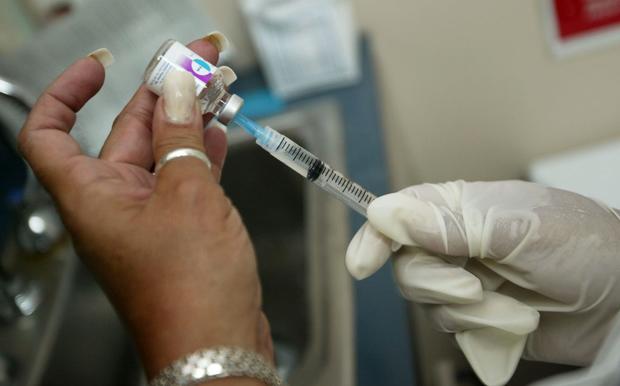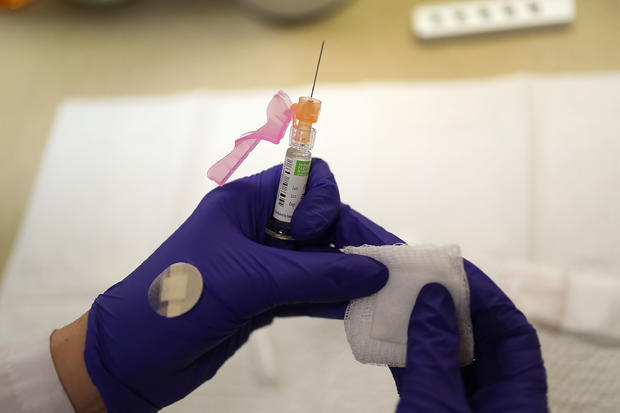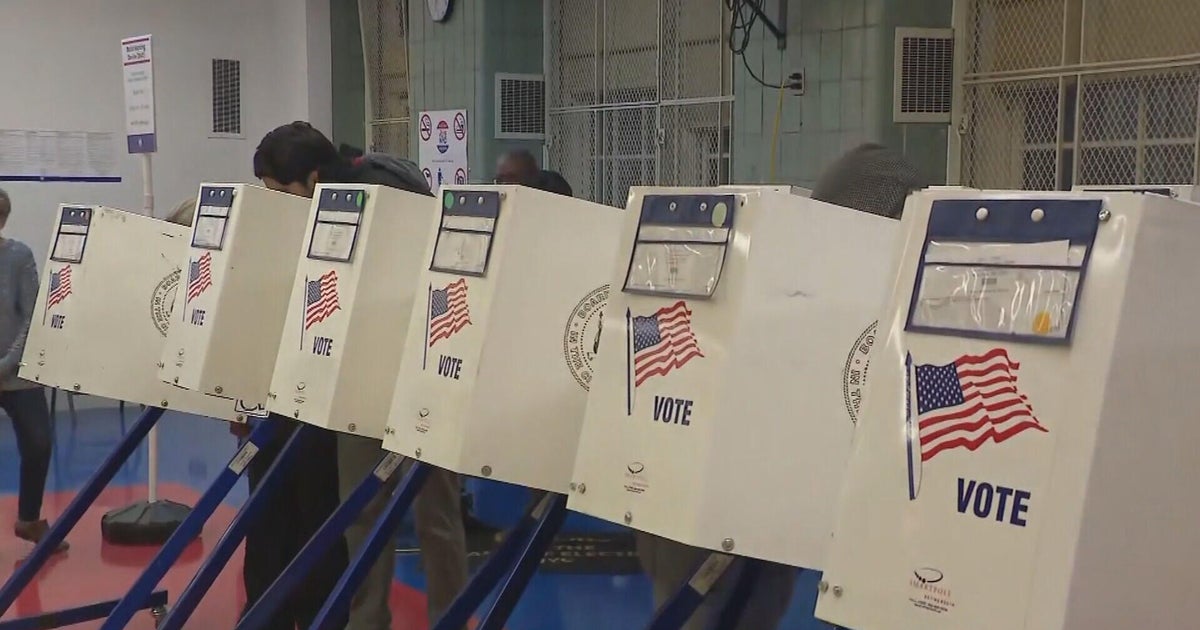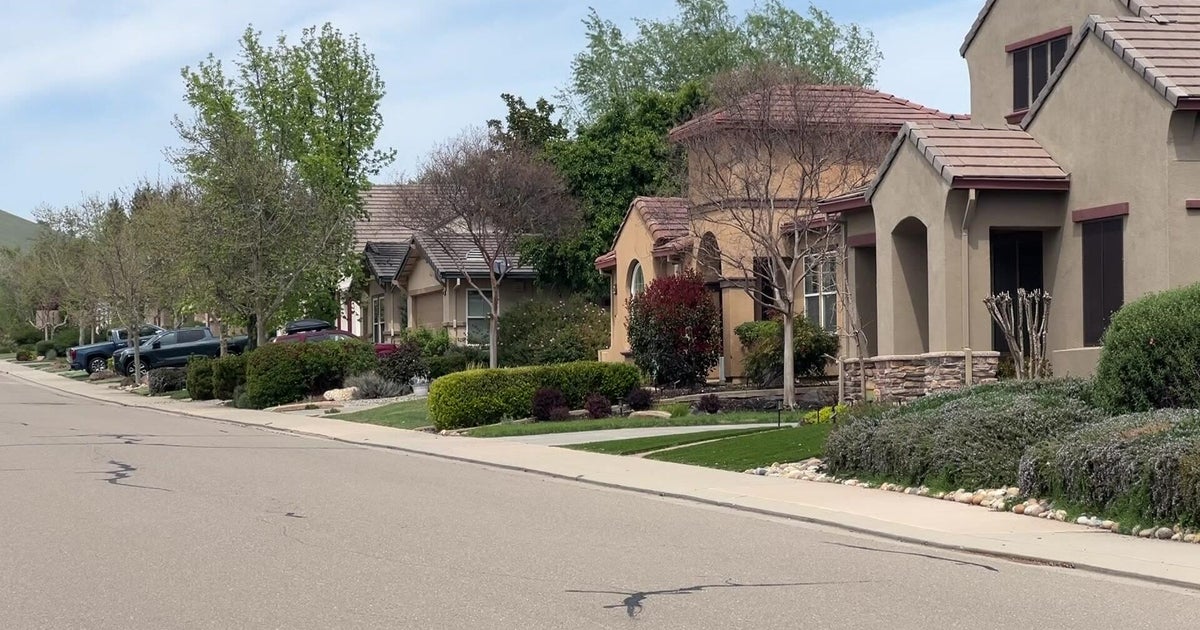Flu Hospitalizations Are Down Nearly 100% In Colorado Halfway Through The Season
DENVER (CBS4) - Halfway through the 2020-2021 flu season in Colorado, data from CDPHE shows a dramatic drop in flu cases. Officials credit health mitigation efforts for keeping flu cases low.
Only 23 people in Colorado have been hospitalized since the flu season began here in September. During the 2019-2020 flu season, which ranges from late September to late May, 2,942 people had to be in the hospital. That is a decrease of more than 99%.
In a statement to CBS4, CDPHE Chief Medical Officer Dr. Eric France calls the drop "extraordinary."
"We have seen an extraordinary drop in flu cases and hospitalizations this season," France said. "Our current basic public health measures, including wearing masks, getting vaccinated, and avoiding gatherings with people outside their homes, have proven effective at dramatically slowing the spread of the flu this season."
Officials note a 13.5% rise in influenza vaccinations as a key reason cases are dramatically down. In Colorado, 2,124,469 people got their flu shot this season. For context, in 2019, Colorado's population was recorded at roughly 5.8 million.
The news comes as music to the ears of health professionals like Dr. Jared Eddy, the Director of Infection Control at National Jewish Health. Doctors were bracing for a "dual pandemic" starting in late September when flu season arrived. The U.S. hospital system sees roughly 150,000 hospitalizations from Influenza in any given year, and the medical infrastructure was already at capacity from COVID.
"The health care field was very worried about having a typical flu season overlap with COVID-19," Dr. Eddy said. "So, to have added a typical flu season to our winter COVID-19 wave would have been a tremendous stress to the system, and it's when the hospital system is stressed that morbidity and mortality from COVID-19 increase, as we saw in places like northern Italy and New York City early on."
Eddy echoes CDPHE in his praise for mitigation efforts in stopping the spread of the flu, but adds that the decrease in international travel has played a role as well in preventing strains from circulating around the world.
If you think you can get one vaccination and be immune for life, Dr. Eddy says think again.
"Booster shots are quite likely for two reasons," Dr. Eddy said. "First, the experience with other coronaviruses that cause the common cold is that after becoming sick (i.e., natural infection) you lose immunity over a matter of months. One study of people who had COVID-19 showed only a small drop in immune responses at 6-8 months, though it is still unclear if those responses mean protection from reinfection. The hope is that a COVID-19 vaccine will provoke a stronger and more lasting protective immune response even than many people who have had "natural infection" with COVID-19. In scientific experiments, the response to the mRNA vaccines was still strong at 3 months, and studies are ongoing to see how long it truly lasts. However, there is a strong possibility that people will need re-vaccination at some point for this "durability" consideration."
When it comes to variants, a booster shot could also help mutations.
"The new technology mRNA vaccines are particularly adept at dealing with this problem because they can more easily be adjusted in the lab to code for the mutated virus," Eddy said. "It should be noted however, that even if the vaccines are less effective for certain variants, they are still quite effective in preventing serious illness and death even in these variants. Also, your chances of contracting a variant that is less effective is still small – so it would be foolish to not receive a vaccine right now due to concern over variants."









